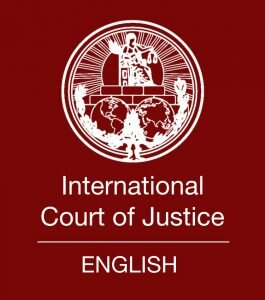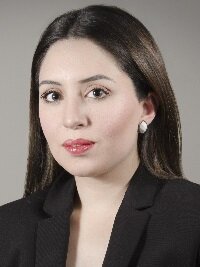
Established in 1945 by the United Nations Charter, the International Court of Justice is the only judicial and one of the six principal organs of the United Nations. It is located at the Peace Palace in The Hague (Netherlands). The role of the ICJ is to settle legal disputes submitted by UN Member States through applications in accordance with international law. Moreover, the Court gives advisory opinions on legal questions referred to it by authorized UN Organs and specialized agencies. In this committee, delegates will not be representing sovereign states; rather they will take the role of a judge of the Court and resolve the cases in collaboration with the 15 judges presiding the court, including the President and Vice-President of the Court (CANIMUN staff).
Please note that this committee will contain a crisis-style component, in which Justices will review a case without prior preparation.
ICJ Background Guide 2017 | Position Paper Guide & Instructions | Delegate Resources The committee staff can be reached at
Topics / Cases:
Certain Iranian Assets (“Islamic Republic of Iran v. United States of America”)
In the face of the threat that terrorism poses, the United States Supreme Court ruling on seizure of the Central Bank of Iran’s assets in order to compensate the relatives of those killed in the 1983 bombing in Beirut inevitably raises the question on the status of those entities that have traditionally relied on immunity from enforcement proceedings, and that may now be deprived of their rights to property and freedom of commerce. Judges will have to examine the fine line between confiscation and compensation in accordance to the applicable international law, in order to decide if the seizure of Iranian companies’ assets is legally sound. A decision of this kind may constitute an important precedent in a world where terrorism remains a challenge for the 21st century.
Immunities and Criminal Proceedings (“Equatorial Guinea v. France”)
State immunity is a fundamental concept derived from sovereign equality. Unfortunately not all states adhere and defer to state immunity of other nations. Equatorial Guinea v. France is a pending case of the ICJ that deals with immunities and criminal proceedings. The Republic of Equatorial Guinea brought an action to curtail France‘s pursuit of trial of the senior government official of the Republic of Equatorial Guinea on charges of money laundering. Moreover, it sought to define the legal status of the building which houses its Embassy in France. This is the first time that the Court engenders a dispute related to large-scale corruption, offering delegates to look at expanding case law on criminal jurisdiction and immunities in the context of large-scale corruption.
Committee Staff:
 MARIANA ODETE ANDRADE | PRESIDENT
MARIANA ODETE ANDRADE | PRESIDENT
Mariana holds a Bachelor in Law degree from Universidad San Francisco de Quito (USFQ). Born and raised in Quito, Ecuador, Mariana first became involved with Model UN during her second year of Law school, where she represented USFQ at National Model United Nations (NMUN) in New York and NMUN Latin America in the Galapagos Islands. Subsequently, she tutored USFQ’s delegation for NMUN New York and served as both a delegate and committee staff at various Model UN conferences. Mariana currently works as a junior associate in a law firm and plans on starting her graduate degree in Corporate Law in January, 2017. She will be visiting Canada for CANIMUN 2017 to serve as President of the International Court of Justice, where she looks forward to a high-level debate on the current most relevant issues surrounding International Law.
 TATYANA BUDILSKAYA | VICE-PRESIDENT
TATYANA BUDILSKAYA | VICE-PRESIDENT
Tatyana is a JD-MA candidate in International Relations at the University of Ottawa and the Norman Paterson School of International Affairs. Her latest endeavors focus on addressing the legal structures which contribute to human rights violations in the context of migratory movements. Tatyana is also works with the Women’s Legal Mentorship Program and is an intern with the Canadian Red Cross. Tatyana first developed the fervour for politics and the law by enrolling in Model Parliament and MUN while completing her Joint Honours BA in Political Science and Communication at the University of Ottawa; she has been captivated with the UN and MUN ever since. During her time at Global Affairs Canada, Tatyana helped with communication strategies concerning the 69th UNGA session. This year, Tatyana will serve as the Vice-President for the ICJ at CANIMUN 2017.
 DANIELE MEDLEJ | CRISIS DIRECTOR
DANIELE MEDLEJ | CRISIS DIRECTOR
Daniele is a recently graduated student from McGill University in a double major of Political Science and Sociology. During her summer post-graduation, Daniele completed an internship in the Office of the Prime Minister in Ottawa. She is currently taking a gap year from her studies in order to pursue her goals of working with the federal government. She is incredibly passionate about international relations, having initiated a Model UN for Beginners program at McGill University, and having participated with the school’s teams in multiple conferences, both as a staffer and as a delegate. As Crisis Director for CANIMUN 2017, her main priority is to challenge each delegate to give their best and to take full advantage of the committee’s tools and powers. The result will be unpredictable, yet nothing short of exciting, and she is looking forward to seeing all delegates step-up to the challenge.


